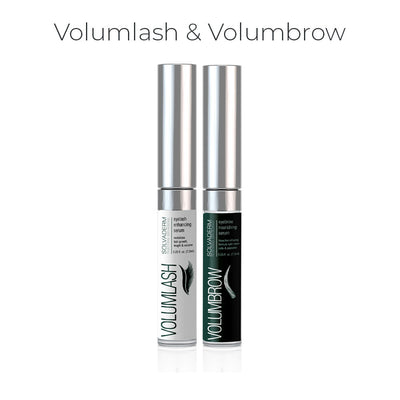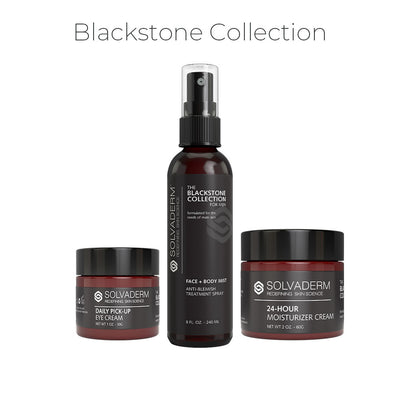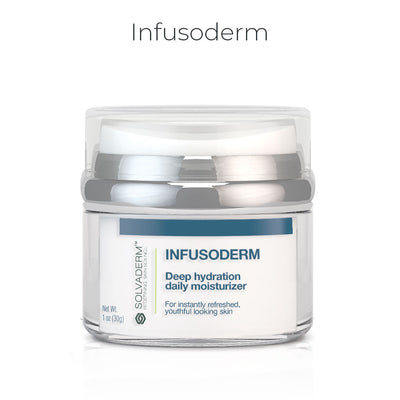Although our skin is strong enough to protect us against environmental influences, it’s one of the most sensitive and delicate organs in the body. Various factors may affect its structure. For example, sun exposure can cause numerous problems that range from wrinkles to darker skin patches or hyperpigmentation. The hyperpigmentation on black skin is a subject that deserves more attention. This article gives a detailed insight into hyperpigmentation in darker skin, why it happens, and what you can do about it.
What is Hyperpigmentation?
Hyperpigmentation is a common skin condition indicated by darker skin patches due to an excessive production of melanin. Melanin is the pigmentation responsible for the color of our skin, hair, and eyes. Studies show that across all ethnic and racial groups, 90% of hyperpigmentation cases account for women and 10% appear in men.
While people with lighter skin tones may also deal with this issue, hyperpigmentation on black skin is also a common problem. This article mainly focuses on hyperpigmentation on darker skin, its causes, and solutions or treatments.
What is Hyperpigmentation on Black Skin?
Hyperpigmentation on black skin refers to the excessive darkening of skin patches in persons with dark complexion. Like in other cases of hyperpigmentation, excessive production of melanin is the main culprit. When specific conditions affect the skin, such as a wound, melanin is released during the healing process.
Compared to other skin types, black skin contains more deposits of melanin. For that reason, overproduction of melanin is quite common and leads to discolored patches of skin.
Hyperpigmentation on black skin can last very long and is more challenging to treat than discolorations affecting lighter skin tones. According to the Skin of Color Society, over 65% of African Americans exhibit symptoms of hyperpigmentation due to skin damage or irritation.
While hyperpigmentation is not dangerous and contagious, it may affect a person’s confidence and self-esteem.
Types of Hyperpigmentation on Black Skin
Not all cases of hyperpigmentation on darker skin are the same. It’s important to understand different kinds of discolorations to manage them successfully. There are different types of hyperpigmentation on black skin, these are:
- Sunspots: also known as solar lentigines; result from prolonged exposure to the sun. They tend to appear on skin areas such as hands and face, which are exposed to the sun the most. Sunspots are well-defined, round, or oval. It’s possible to reduce their visibility with the best product for hyperpigmentation. Other names for sunspots are age spots and liver spots.
- Melasma: or mask of pregnancy, indicated by larger and irregularly shaped dark patches on facial skin. Melasma primarily affects the cheeks, forehead, and upper lip. This type of hyperpigmentation dark skin is due to hormonal changes, birth control or pregnancy, and sun exposure. The prevalence of melasma is higher in women with darker skin types.
- Post-inflammatory hyperpigmentation: occurs as a response to skin inflammation such as eczema or acne. It can cause dark patches in the affected areas of the skin. This form of hyperpigmentation on black skin is more pronounced and takes longer to fade compared to post-inflammatory hyperpigmentation among people with lighter skin.
What Does Hyperpigmentation Look Like On Black Skin?
Based on the name of this skin problem it’s easy to conclude that hyperpigmentation is characterized by the appearance of dark spots or marks on the skin. These spots are a few shades darker than the surrounding skin. This hyperpigmentation on black skin, darker or discolored spots, and patches appear in the following tones:
- Tan: hyperpigmented areas appear as light brown or tan spots and patches which can be flat or slightly raised. These spots often create contrast with a person’s natural skin.
- Brown: these spots and patches resemble irregularly shaped areas of enhanced pigmentation.
- Dark brown: hyperpigmentation on black skin can sometimes appear dark brown and resemble large freckles.
- Gray-brown: sometimes discolored areas of skin take on a gray-brown hue creating a contrast with the surrounding skin.
- Blue-gray: hyperpigmented areas appear grayish or bluish, especially when the pigmentation is deep within the skin.
- Purple: in some cases, discolored areas get a purplish tint due to a combination of pigmentation and vascular changes under the skin.
- Black: sometimes people develop hyperpigmented spots or patches that are very dark and appear nearly black.
What Causes Hyperpigmentation in Black Skin?
As mentioned above, hyperpigmentation dark skin results from excessive production of melanin. But what causes the overproduction of this skin pigment? Several factors can stimulate excessive melanin production and contribute to skin discoloration. They are described below.
1. Skin inflammation
Injury or an inflammatory skin condition can cause hyperpigmentation on black skin. This happens because inflammation may stimulate the production of melanin. Conditions associated with skin inflammation include acne, eczema, contact dermatitis, psoriasis, cuts, burns, insect bites, and infections that cause sores, blisters, and rashes.
2. Sunlight exposure
Production of melanin is increased during sun exposure to protect the skin. However, in the process, you may develop dark spots or patches on the skin. Studies show that UV radiation may induce immediate pigment darkening by chemical modification of melanin. Aside from using the best product for hyperpigmentation, you also need to apply sunscreen regularly.
3. Skin reactions against drugs
Some medications can trigger drug-induced hyperpigmentation as a side effect. Good examples are tricyclic antidepressants and antimalarial drugs, which can cause grayish patches on the skin. Other medications that may act on melanin production are chemotherapy and non-steroidal anti-inflammatory drugs (NSAIDs).
4. Changes in hormones
Fluctuations in hormones can contribute to a type of hyperpigmentation dark skin known as melasma. In this case, excessive melanin production results in large, irregular brown or gray-brown skin patches. Hyperpigmentation is usually associated with hormonal imbalances during pregnancy, menopause, or due to birth control pills. Between 10% and 25% of women taking birth control pills develop melasma.
5. Chemical reactions in topical treatments
The use of certain skincare treatments or products can lead to irritation of the skin which may result in hyperpigmentation. Reactions to topical treatments are associated with products containing harsh chemicals and excessive exfoliants. The problem may become worse when these products are used incorrectly, i.e. not following the instructions on the label.
6. Medical conditions
Certain health conditions may cause hyperpigmentation on black skin as one of their symptoms. That happens because these medical conditions negatively affect the production of melanin. Examples of medical conditions linked to hyperpigmentation are adrenal disorders such as Addison’s disease, thyroid disorders, hereditary hemochromatosis (iron overload), and diabetes.
How is Hyperpigmentation Diagnosed?
To diagnose hyperpigmentation dark skin, a healthcare provider may ask a patient about his or her medical history such as when the discoloration started, and whether they’re taking certain medications. The doctor will also perform a physical exam of the affected area and use a special ultraviolet light to examine your skin (Wood lamp test). Blood tests may also be necessary to determine whether hyperpigmentation results from a health condition or nutritional deficiency. Upon diagnosing hyperpigmentation, the doctor may inform the patient about proper management of this skin condition. Remember, hyperpigmentation isn’t harmful or contagious.
How to Prevent Hyperpigmentation on Black Skin?
The biggest problem with hyperpigmentation is that it affects a person’s self-esteem. Fortunately, there are a lot of ways in which one can prevent the development of discolored spots and patches. The best approaches are described below.
1. Avoid direct sunlight and apply sunscreen regularly
Sun exposure is our skin’s arch nemesis. It can cause various problems, including hyperpigmentation. For this reason, it’s crucial to avoid exposure to direct sunlight as much as you can. When you need to spend time in direct sunlight, make sure to apply sunscreen regularly to protect your skin from UV rays. Choose products like Dermaxsol Hydrating SPF Daily Moisturizer which both protects and nourishes your skin.
2. Apply anti-inflammatory skincare formulas
Since inflammation contributes to the darkening of your skin, the best product for hyperpigmentation is the one with anti-inflammatory ingredients. Some of the best anti-inflammatory ingredients in skincare are aloe vera, turmeric, chamomile, calendula, ceramides, witch hazel, vitamin C, and green tea.
3. Use skin-brightening products after a breakout
Following a breakout, or any other skin injury, you may want to consider using skin brightening products such as Juvabrite – Skin Brightening Cream to address residual pigmentation. Skin brightening creams or serums are formulated to reduce the appearance of age spots and other skin discolorations.
4. Limit touching your skin
Frequent skin touching, especially in the facial area, introduces bacteria and irritates the skin. This may lead to inflammation and hyperpigmentation. Avoid touching your face or picking and squeezing blemishes and acne.
5. Apply moisturizer daily
A regular skincare routine is crucial for prevention of hyperpigmentation. Moisturizer is the star of your skincare routine. Regular use of products such as Infusoderm Deep Hydration Daily Moisturizer can revitalize and refresh the skin, hydrate, nourish, and protect the skin against oxidative stress. Moisturizers reduce dryness and prevent inflammation of the skin.
FAQ
Is hyperpigmentation common on black skin?
Yes, hyperpigmentation is common on black skin. It’s one of the top five most frequently diagnosed skin conditions among black people.
Who suffers from hyperpigmentation?
Women are primarily affected by hyperpigmentation. This skin problem also affects people who spend a lot of time in direct sunlight, individuals with inflammatory skin conditions, and persons with hormonal imbalances. Pregnancy can lead to hyperpigmentation.
Can you treat hyperpigmentation with diet?
A healthy diet supports overall skin health, and it can help diminish hyperpigmentation. You need the best product for hyperpigmentation, such as sunscreen and skin brightening cream or serum. In addition to this, a healthy lifestyle like a balanced diet is pivotal in addressing hyperpigmentation.
Conclusion
Hyperpigmentation black skin is a common problem that usually affects women. While hyperpigmentation can’t harm you physically, it is essential to understand the causes behind these discolorations. Many people don’t feel comfortable with hyperpigmentation and it can take a toll on their confidence. Fortunately, there are a ton of ways to prevent them. Follow the tips mentioned in this post to reduce the risk of hyperpigmentation and maintain flawless skin.
References
1] https://www.ncbi.nlm.nih.gov/pmc/articles/PMC5029232/
2] https://www.clearessence.com/best-products-for-hyperpigmentation-in-black-skin/
3] https://skinofcolorsociety.org/patient-dermatology-education/post-inflammatory-hyperpigmentation-pih/
4] https://www.ncbi.nlm.nih.gov/pmc/articles/PMC5342934/
5] https://www.ncbi.nlm.nih.gov/pmc/articles/PMC5574745/
6] https://www.ncbi.nlm.nih.gov/pmc/articles/PMC3400707/
7] https://int.eucerin.com/about-skin/indications/melasma
8] https://pubmed.ncbi.nlm.nih.gov/18681154/
9] https://www.healthline.com/health/skin/hyperpigmentation-on-black-skin










